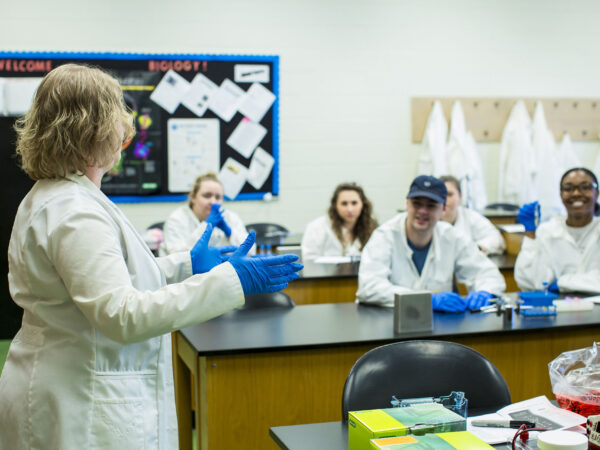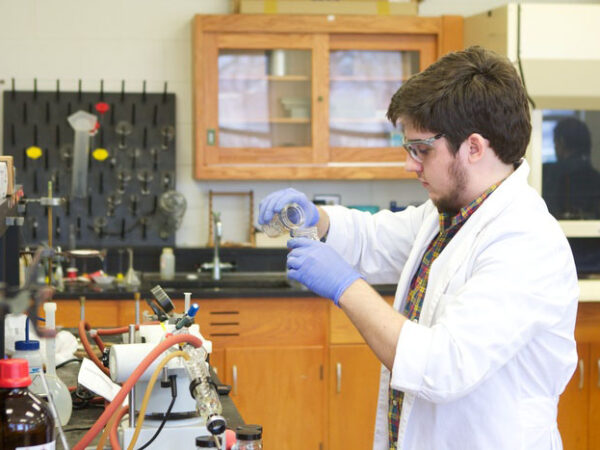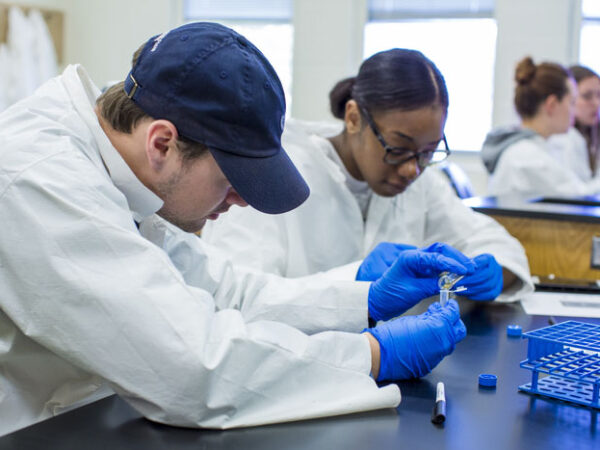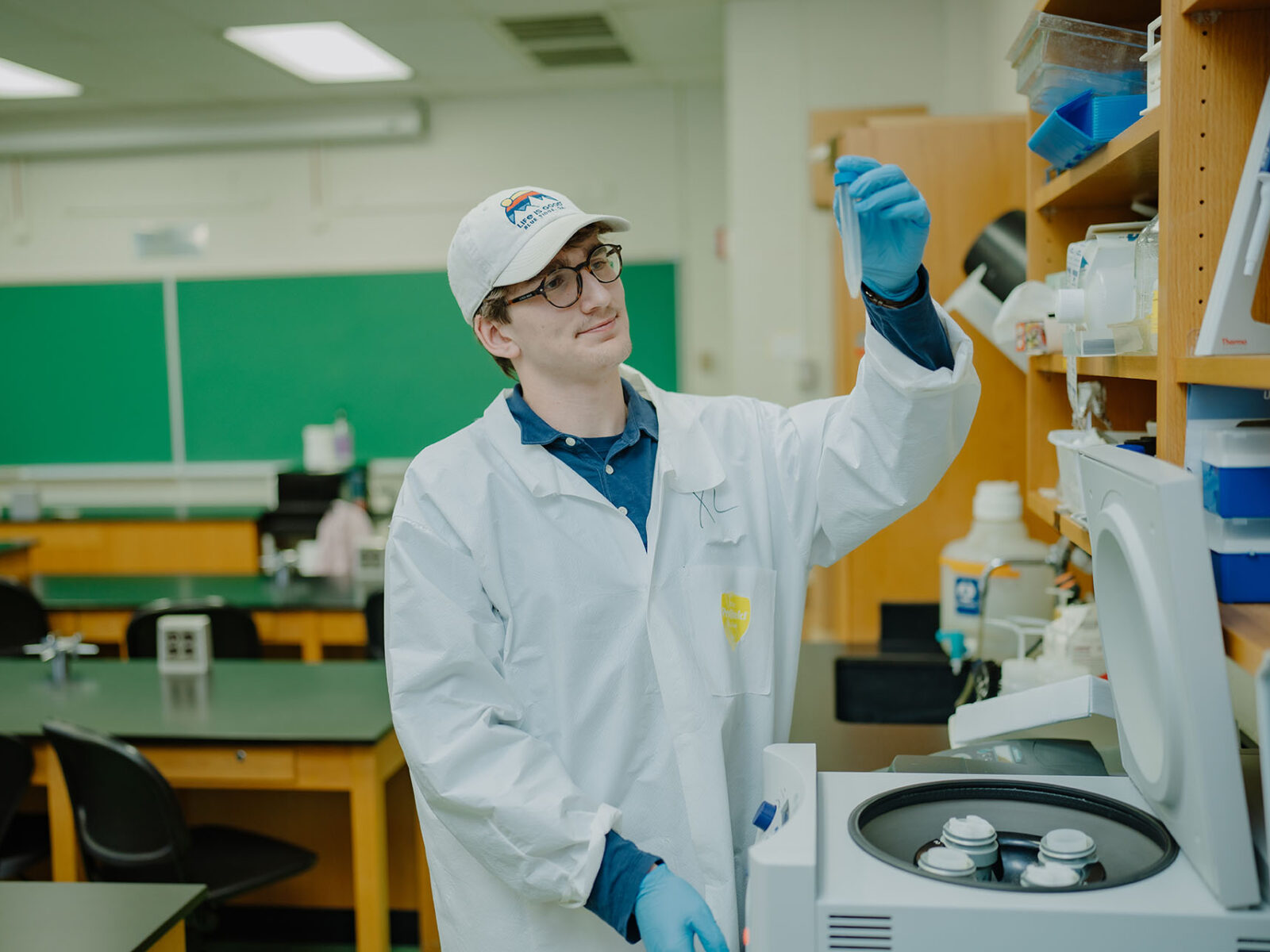
Chemistry, Bachelor of Science Degree
Explore the science of matter and its transformations and the central science, connected to physics, math, and biology.
About Chemistry at Young Harris College
Chemistry is the science of matter and its transformations and is often called the central science due to its connections to physics, math, and biology. Chemistry majors learn how to solve problems, think critically, communicate effectively, utilize existing literature, and investigate nature according to the scientific method.
Math, Science, and Technology majors are all built on the same liberal arts core, and the chemistry major is designed to provide students with a breadth of knowledge that will allow them to pursue a diverse range of careers and to critically examine and understand the world around them.
Chemistry requirements
To graduate with a bachelor’s degree in Chemistry from YHC, you’ll take 120 hours of coursework.
General Education:
Electives:
Program courses:
Some of our most popular business administration classes include:
CHEM 3410 & 3420 Physical Chemistry
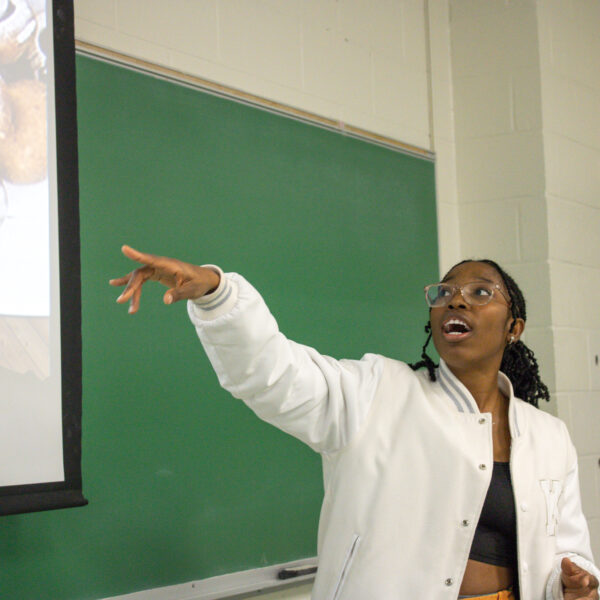
Tracy Dumaker Class of ’24, Dallas, GAYoung Harris has presented me with opportunities I would otherwise not have had. Professors like Dr. Hoffman and Dr. Barnes push me to do my best, and I feel lucky to be a part of such a close-knit community.

